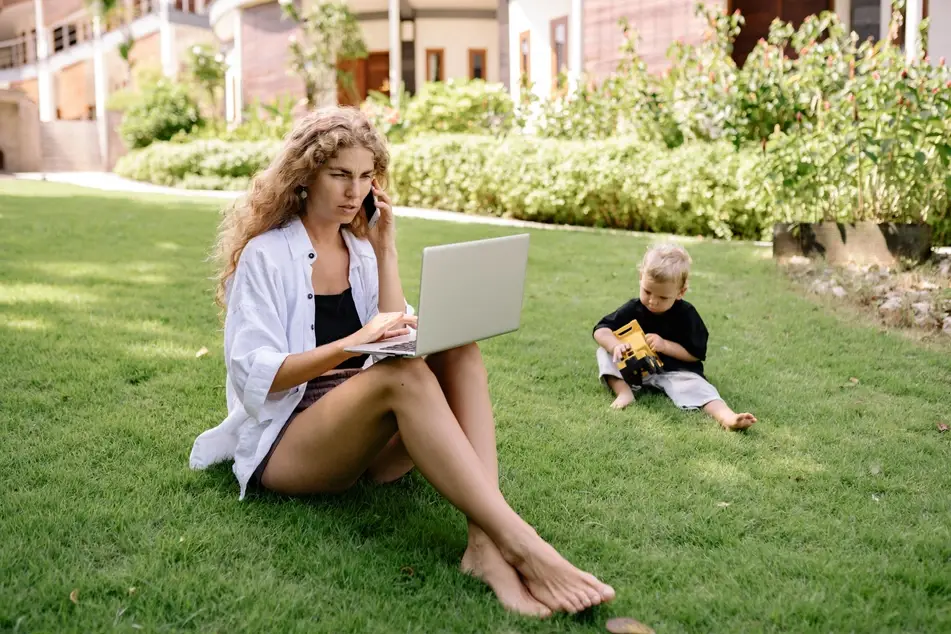What COVID-19 Can Teach Us About Accessibility

A global pandemic has taken many of us out of our regular in-person world and into virtual spaces for nearly every aspect of our lives. For many folks with disabilities and chronic health issues, relying on technology tools to stay connected and contribute to causes they care about is par for the course—and a point of frustration. The social distancing necessitated by the novel coronavirus has starkly highlighted inequities in our social services and our social change movements as it relates to accessibility.
“Our decorum as a society is bound up in arbitrary rules. Due to a pandemic, suddenly everyone is realizing many of these rules don’t matter,” said Monica McMyne, a community advocate, person in recovery, and CEO of Rhode Island-based recovery community organization RICARES. “These rules were for the elite to use to deny us access to their ‘civil society.’ Now? We’re freaking running things.”
Remember this feeling
Nonprofits, small businesses, and government entities have been thrust into a situation where they have to implement online programs and tools they’ve never used before. Even major university systems with more resources find themselves scrambling to implement distance learning for thousands of students. We’ve embarked on a crash-course in technology implementation under circumstances where immediate human need is placing great strain on the systems all around us.
Amidst it all, everyone is asking for grace. We’re signing emails with things like “thank you in advance for your patience while we navigate this unprecedented situation.” If this makes you feel a bit helpless or lacking in control—then remember that.
Let these feelings feed your empathy and awareness in the future, when this is in the rear view. Are you feeling anxiety in the face of ambiguity? Stressed by juggling additional caregiving, health care, and home-life responsibilities while trying to keep your life and work running smoothly? The fear of losing your income? The undercurrent of our collective safety not being guaranteed? Or maybe you’re feeling that you are doing the very best that you can—and you only hope people see that and understand.
These are many of the feelings that individuals with disabilities and other access needs feel when they request additional support—and very often, it isn’t made available. Historically, the world does not have a great track record with disability rights and access for folks with special needs. This pandemic is a challenge for all of us, and it’s also an incredible learning opportunity. What we take away from this experience can help us shape the future.
When the pandemic ends, don’t go back
We’ve seen even major bureaucratic institutions like the United States Social Security Administration suddenly make changes, allowing remote access and phone appointments where they haven’t before. For people like disability activist Kerry Sheehan, this is life-changing—before COVID-19 she had to fight for appointments by phone to avoid weeks of sickness after visiting government buildings. Now phone appointments are the norm because everyone needs them. Unfortunately, it doesn’t seem like it will last.
“Everything says this is for COVID-19 and temporary,” Sheehan told us. “So we know it’s going to go away.”
So many of us are looking forward to the day when we can get back to “normal”. But let’s remember that a return to how things were before is not positive for everyone. We have the opportunity to take what we’ve learned during this crisis and use it to create a more accessible, equitable future—and we have the responsibility to try.
And if you’re in a position of leadership at your organization, you are likely even more poised to make some of these “temporary” changes into lasting efforts toward a more accessible society. You’ve probably been finding new, creative ways to ensure that all your co-workers have access to the resources they need to do their jobs. Do an audit of all the tools you were able to use to carry on parts of your work, even amidst shelter-in-place orders. And consider how you can carry them forward in the future.
As Sheehan reminded us, “We’ve been doing this for years. And we’ve been doing it on our own.”
***
This is the first of a two-part series on accessibility and the COVID-19 pandemic. Part 2 is available now.
Ashley Fontaine is a writer, mental health professional, and former nonprofit executive director. She’s on a mission to eliminate “we’ve always done it that way” from our collective vocabulary by helping leaders focus on possibilities rather than limitations. She believes organizational culture is the key to productivity and staff retention.


